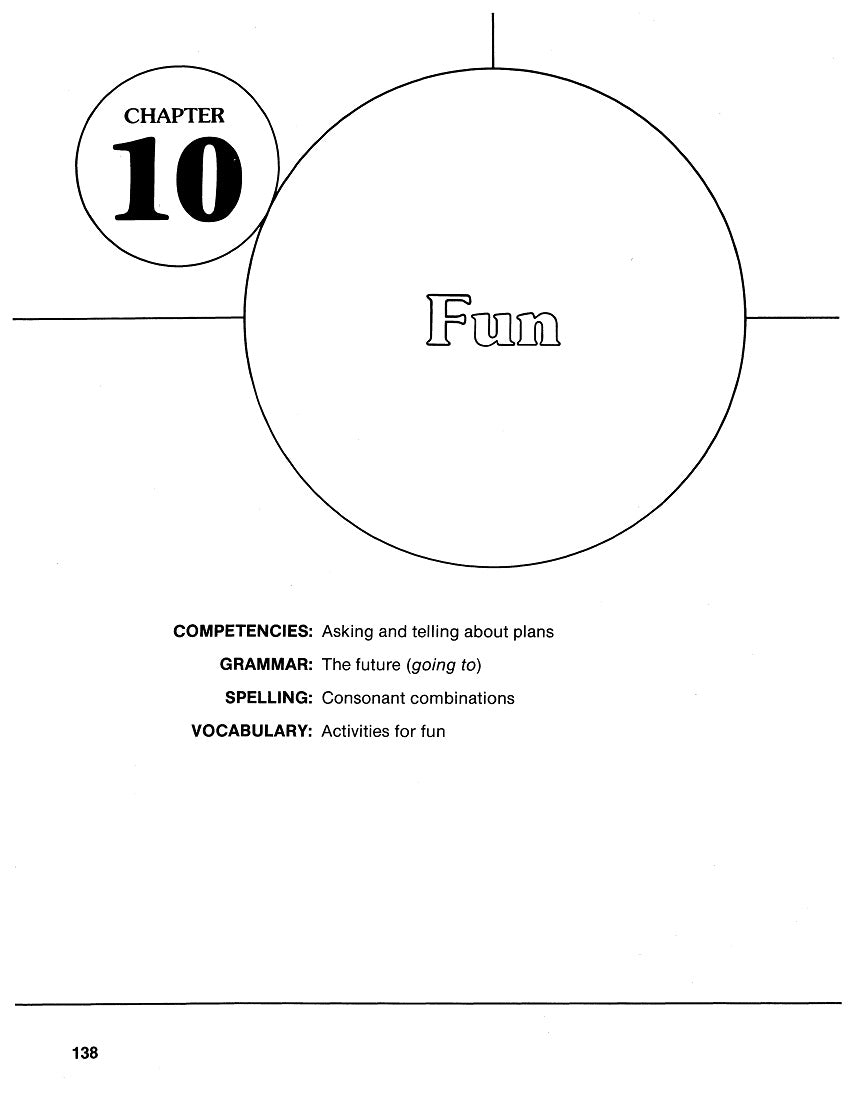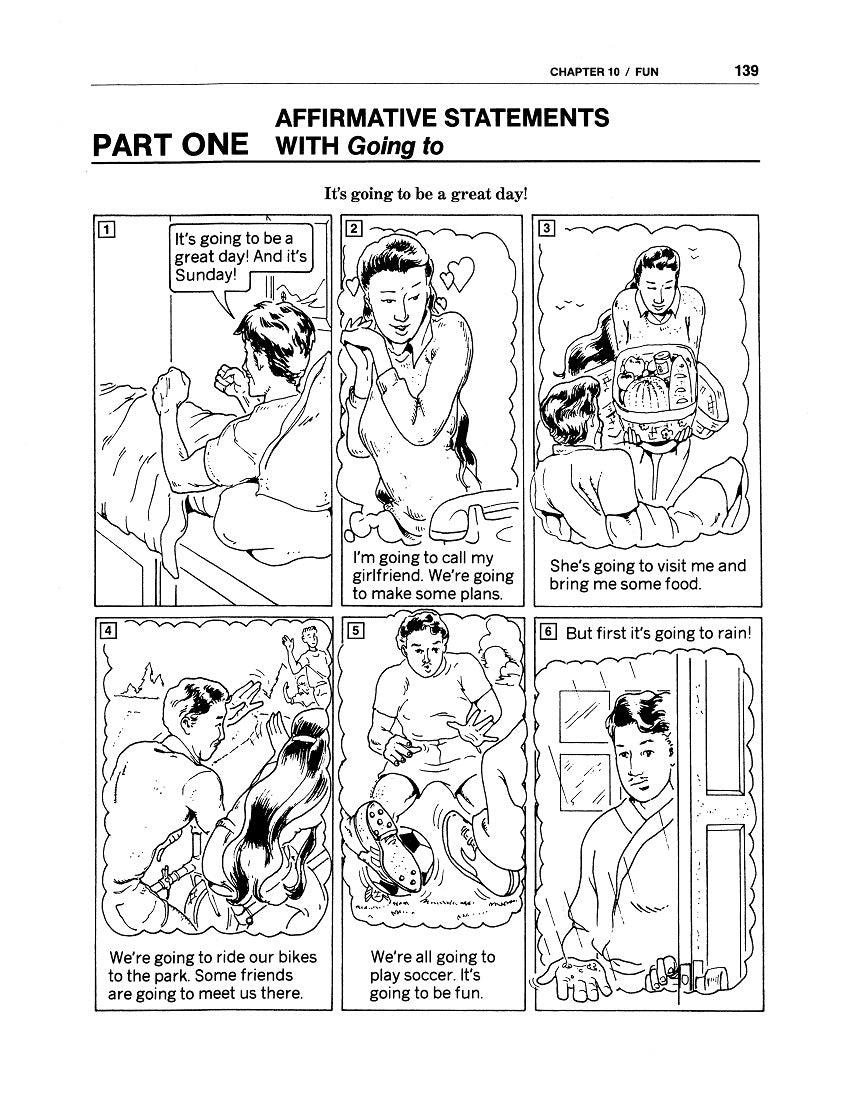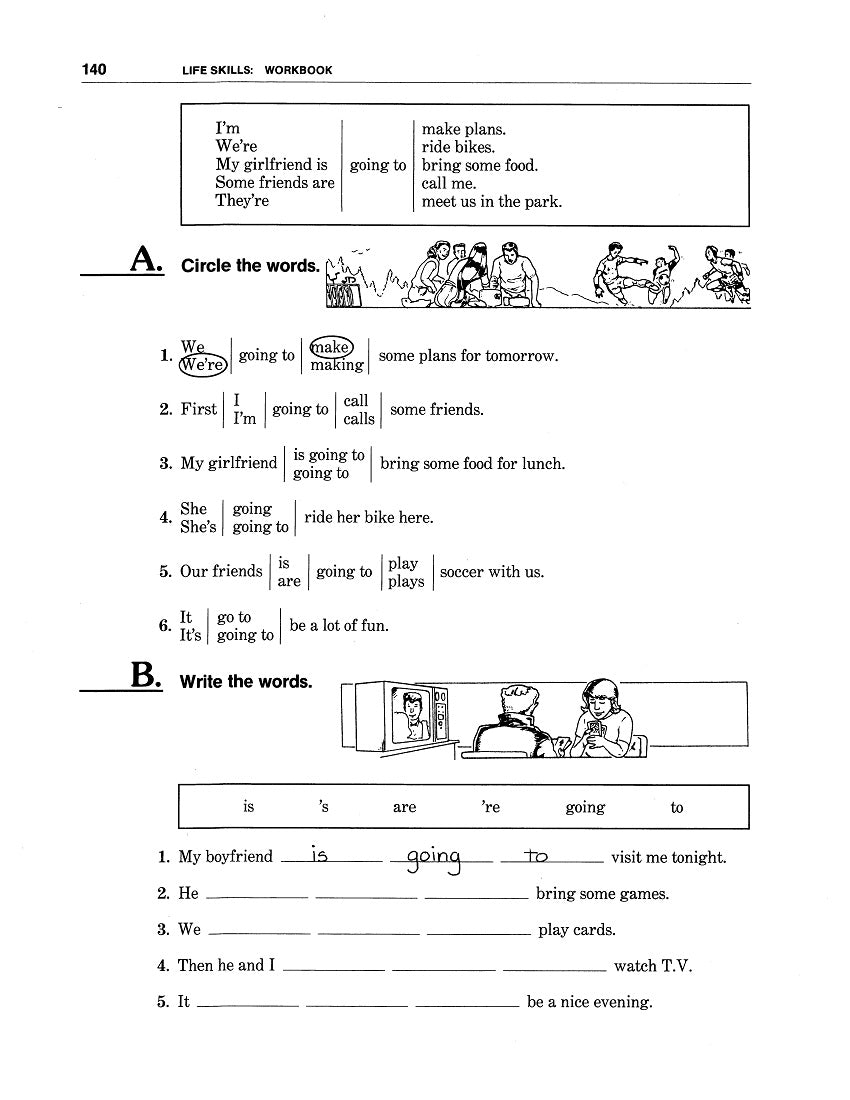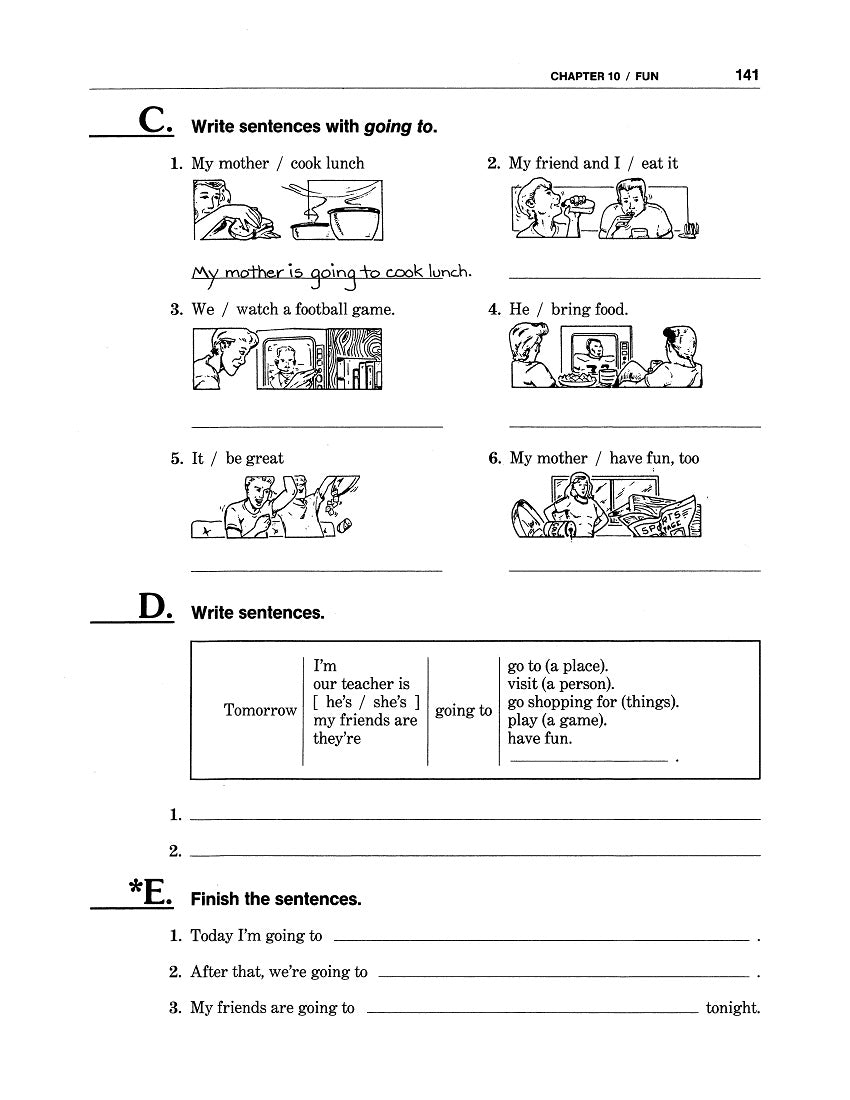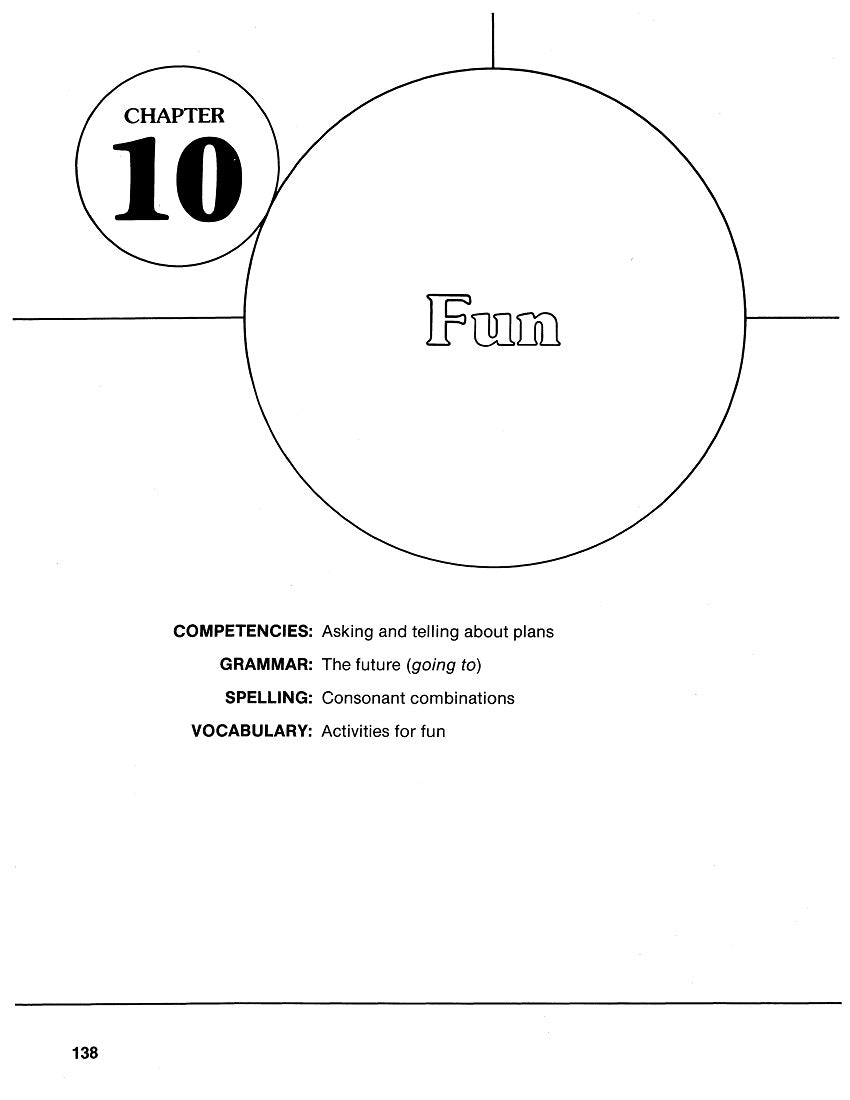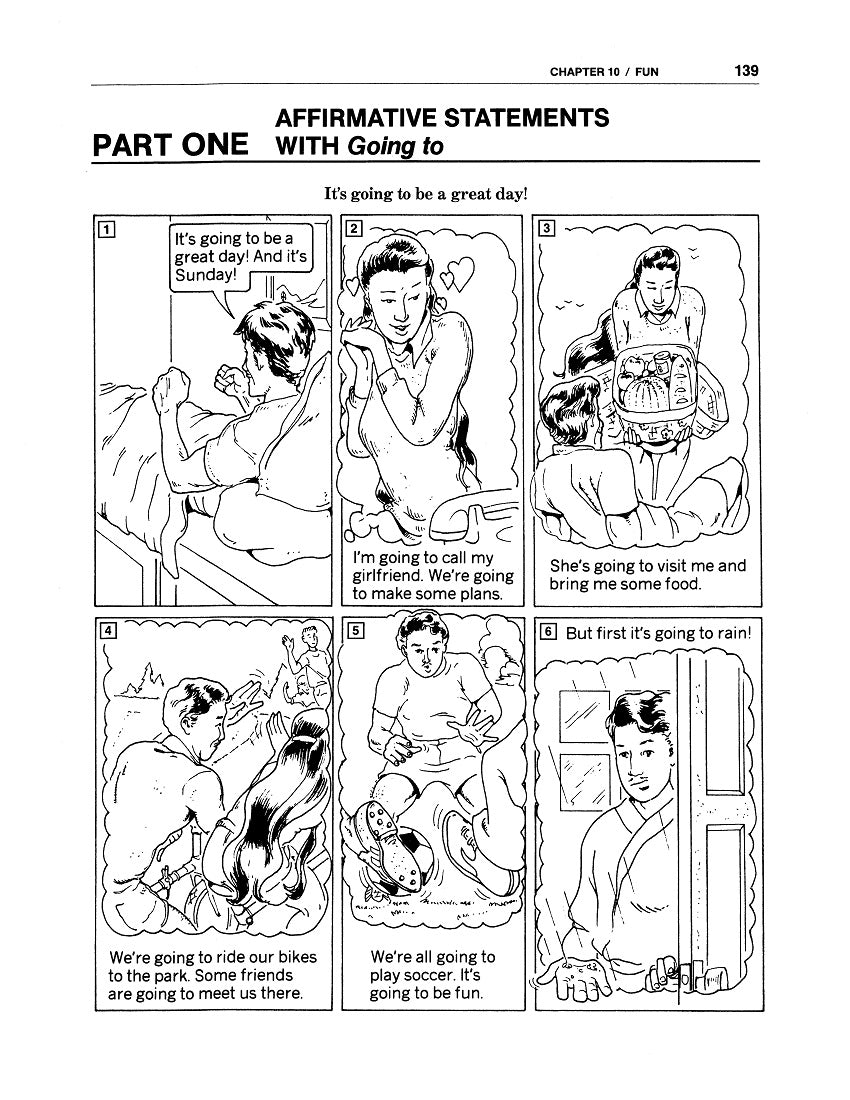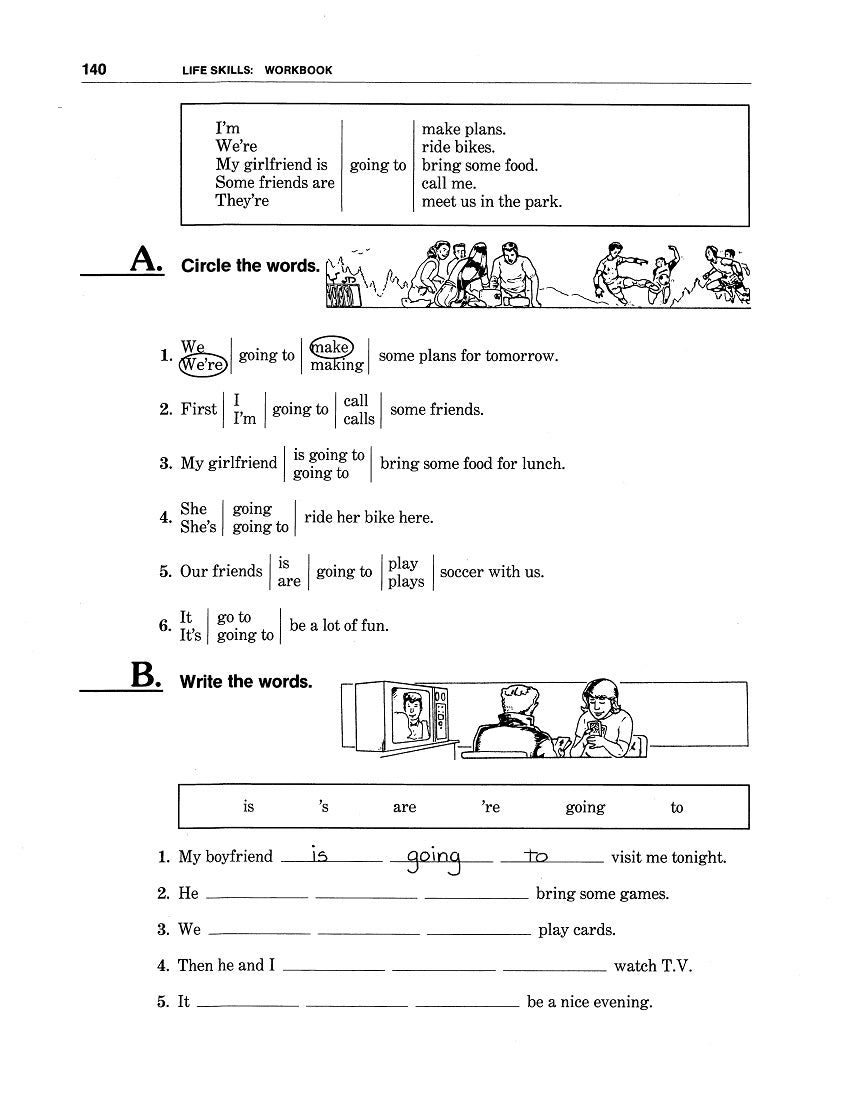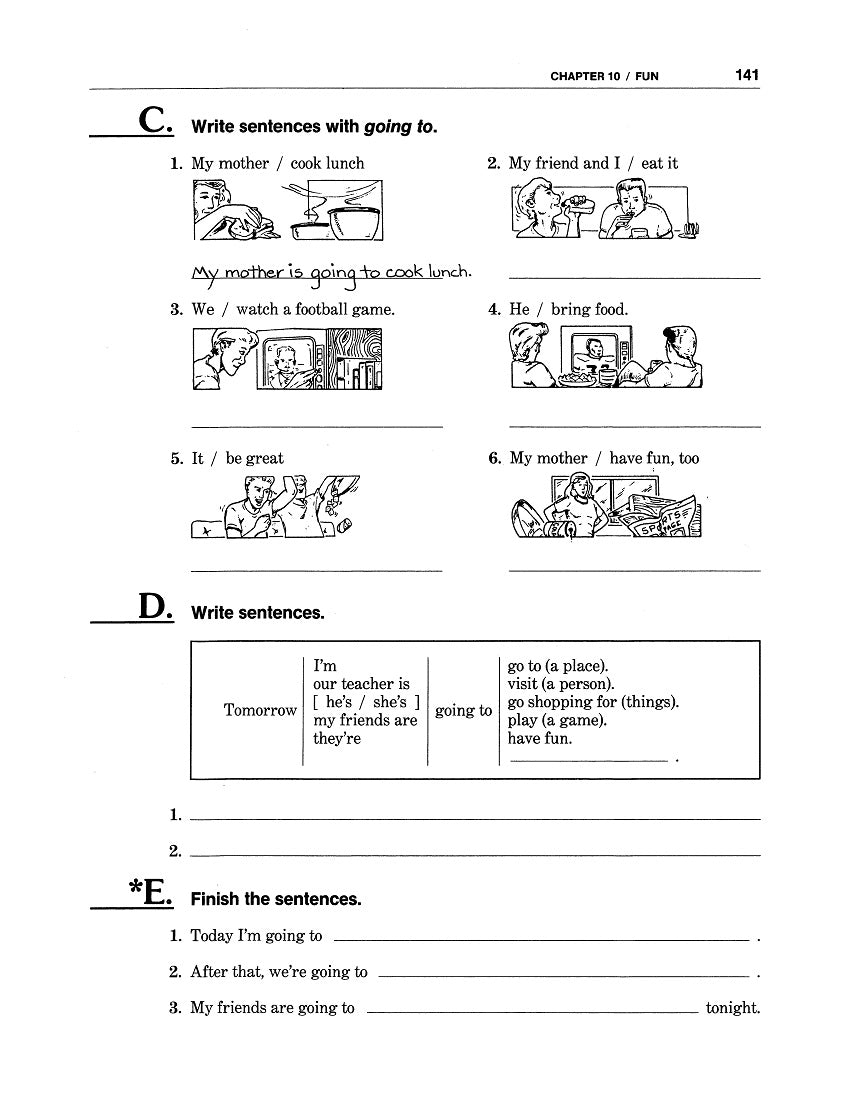1
/
of
4
Work/Life English
D-07.01 Use the Simple Future (be going to + VERB) Apply Grammar
D-07.01 Use the Simple Future (be going to + VERB) Apply Grammar
Regular price
$2.00 USD
Regular price
Sale price
$2.00 USD
Unit price
/
per
Parts One, Two, Three of Chapter 10 (“Fun”) of WorkLife English Life Skills Workbook 1 Pages 138-148
11 pages
Who It’s For: (Teachers & Helpers of) Novice to Beginning Language Learners
Why It’s Useful: As soon as language learners can handle present forms of the verb “to be,” they’ll be able to form sentences with the “simple future,” which consists of am/is/are (not) going to + Base Verb. In American English, this “Simple Future” may be more common than the modal-verb phrasing with will/won’t. It’s also less precise in the meanings it conveys. Here’s a basic lesson.
What You’ll Do:
[1] With participants, pantomime and read aloud the page 139 Part One: Affirmative Statements with Going to Strip Story “It’s going to be a great day!” On pages 141-142, with the Grammar-Pattern Box, identify the features of Affirmative Simple Future Statements: Subject + Verb Phrase (am/is/are + going to before a Verb). Compose and finish sentences in that pattern.
[2] Act out and read aloud the page 142 Part Two: Negative Statements with Going to Strip Story “It’s not going to be a great day.” Follow instructions for the “grammatical pedagogy” and exercises that follow on pages 141-142.
[3] For Part Three: Questions with Going to, “When are we going to have a party?” on pages 145-148, follow the same or comparable instructions or steps.
[3] Go “Beyond the Text” with spontaneous, practical conversations that make use of the targeted grammar patterns
Couldn't load pickup availability
